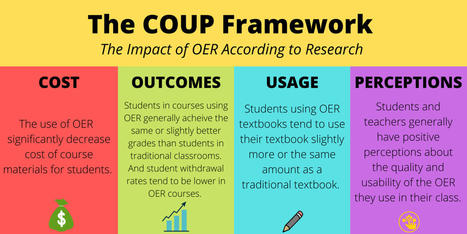The ACRL Framework for Information Literacy for Higher Education: Sociology was approved by the ACRL Board of Directors on 27 January 2022, as a Companion Document to the ACRL IL Framework. "Developed by the ACRL Anthropology and Sociology Section’s Instruction and Information Literacy Committee, the companion document defines Sociological Information Literacy as an understanding of how information and scholarship are created, published, disseminated, and used by individuals and organizations. The document describes connections between the ACRL Framework for Information Literacy and the Sociological Literacy Framework (SLF) developed by sociology professors Susan Ferguson and William Carbonaro.
Via Elizabeth E Charles



 Your new post is loading...
Your new post is loading...










